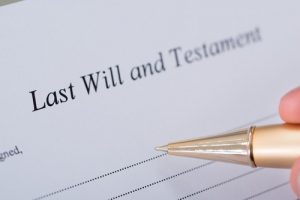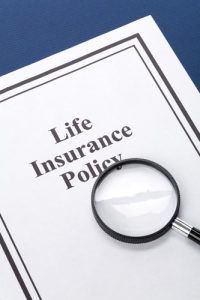Are You Ready for Tax Season? Tips for 2016
 We’re heading into the 2016 tax season. By the beginning or middle of February, you should have received all your tax statements, which might include:
We’re heading into the 2016 tax season. By the beginning or middle of February, you should have received all your tax statements, which might include:
- A W-2 from an employer;
- A 1099 statement from a bank or brokerage account;
- An SSA-1099 from the Social Security Administration;
- A 1099-R from a retirement investment; and
- A schedule K-1 from either a partnership or an estate/trust.
If you haven’t received all your tax forms by mid-February, you should contact the relevant institutions as soon as possible to make sure they have the right address for you and that they did send the forms. It’s important to make sure you “have all your ducks in a row.”
Are You Prepared for the Unexpected? Avoid Stress & Cost by Planning Ahead
 Are you and your family prepared for the unexpected? In the event of a sudden illness or injury, advanced directives can save you and your family time, money, and emotional distress.
Are you and your family prepared for the unexpected? In the event of a sudden illness or injury, advanced directives can save you and your family time, money, and emotional distress.
The three advanced directives everyone should consider are health care proxies, living wills, and powers of attorney, yet these precautions are often overlooked by married couples.
This year I have had the pleasure of working with a married couple who suffered an unforeseen and life-changing event: the wife suffered a debilitating stroke while undergoing a simple medical procedure, and she needed the type of care that is only available in nursing homes.
Is Your Life Insurance Still Fulfilling Its Objective?
Henry Montag, CFP, CLTC, is a guest author for the Russo Law Group P.C. blog.
Do you want to establish a trust? There are many different reasons people do so:
- Some people do it for the management aspects to make sure their assets will be properly invested and not squandered away by a spendthrift child or spouse. Other people want to make sure that, if sued, their assets are protected from the claims of a creditor – and others do it for tax purposes.
- A parent or grandparent may establish a life insurance trust to provide an inheritance earmarked for the next generation, or to make certain that their child’s assets are protected in the event of a divorce.
- Trusts can also be set up to provide for the welfare of a child with or without special needs for a variety of reasons such as providing for their educational fund or giving birthday, graduation or wedding gift even after the grantor has passed away.
- A trust is also an excellent way to make a charitable bequest to assure your legacy and what is important to you will always be remembered.
While there are many factors for an individual or family to consider the benefits of establishing a trust, it is equally important that grantor’s/parents review the trusts they have chosen and make certain that the trustees are knowledgeable about their duties and are continuously still operating in the beneficiary’s best interest.
New Year, Same Plan?
 A lot of changes can occur over the course of one year, let alone the many years it may have been since you have last reviewed your Estate Plan.
A lot of changes can occur over the course of one year, let alone the many years it may have been since you have last reviewed your Estate Plan.
Some factors that can effect your estate plan include:
- Births
- Deaths
- Marriages
- Divorces
- Change in Health
What good is a plan if it does not comply with your wishes and current situation?
What is a Pet Trust?
 Most pet owners think of their pet as a member of the family.
Most pet owners think of their pet as a member of the family.
You love your pet and want to make sure that he will be taken care of after you pass away. After reaching that decision, most people are still unsure of what arrangements need to be made.
What is a pet trust?
A pet trust is a legal agreement to provide for the care of one or more pets in the event that the pet owner dies or becomes unable to care for them. New York State gives statutory authority for the benefit of pets under Estates, Powers, and Trusts Law, Chapter 17-B.
You Don’t Need to Travel to Our Office to Get Help
 Unless you have a crystal ball, it’s impossible to predict what the future holds. Should you become unable to make your own decisions, it is imperative to appoint someone to take care of your affairs and make healthcare decisions on your behalf. Additionally, in order to ensure that your assets are passed on to your loved ones without problems, high legal fees and time delays, it is important to start your planning today.
Unless you have a crystal ball, it’s impossible to predict what the future holds. Should you become unable to make your own decisions, it is imperative to appoint someone to take care of your affairs and make healthcare decisions on your behalf. Additionally, in order to ensure that your assets are passed on to your loved ones without problems, high legal fees and time delays, it is important to start your planning today.
Who is in charge of my remains when I die?
 One of the most challenging topics to discuss when creating an estate plan is the topic of your remains. As attorneys, we meet people from all backgrounds, many of whom have varying wishes as to what should happen to their remains after they die.
One of the most challenging topics to discuss when creating an estate plan is the topic of your remains. As attorneys, we meet people from all backgrounds, many of whom have varying wishes as to what should happen to their remains after they die.
Oftentimes, the default plan that people chose is to be buried through a funeral home. There is no law requiring the use of a funeral home, though many choose to do so because of the full range of services offered, which can make the entire burial process a little easier. If you would like to retain the services of a funeral home, then you should research funeral homes now and make arrangements for a prepaid funeral. Planning ahead will alleviate the stress your loved ones may feel about making arrangements for your burial and can help ensure that the funeral home of your choosing provides services you desire.
Why You Should NOT Write Your Own Will
 Using a Will or a Trust that you found by searching on Google is like using WebMD to diagnose a serious illness.
Using a Will or a Trust that you found by searching on Google is like using WebMD to diagnose a serious illness.
A rational person would not consult WebMD to learn how to treat a serious illness. You might use it as a source of reference, but if you are in pain or want to prevent health issues, you consult to a doctor.
The same is true when planning your estate. You may save a couple dollars by creating your own estate plan, but you are going to cost your loved ones ten times that with the expense of going to court, and by hiring an attorney to interpret and administer the errors in the DIY estate plan you created.
Why Is It Important to Designate a Beneficiary?
A question clients often ask is, “What happens to my assets when I die?”
The answer to that popular question depends on what you do while you are alive.
When you die, your assets are essentially bulked into two general categories: (1) Non-Probate Assets; and (2) Probate Assets.
In order to determine if something is a non-probate or probate asset, you must look at the way in which the asset is owned.


